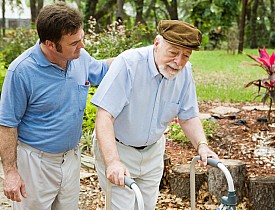Concerns over the need for further care are raised by dementia, an illness that mainly affects people over 65 years of age. It affects memory, language and cognitive ability.
Although age, genetics and medical history impact the risk of dementia, lifestyle also has a big impact on it, as per a report.
Blair Steel, a psychiatrist at Carrana Treatment Wellness and Spa, explains the very common behavior of the general public that they may unintentionally undertake to raise their chance of developing dementia as they are getting older.
Limited social interaction
Socialization is the key factor for healthy mental functioning and also prevents dementia. In-person socialization is preferred over virtual communication because it activates the brain’s connection experience.
Sedentary lifestyle
Prolonged sitting and lack of physical movement can both contribute to cognitive function impairment. Physical aerobic exercise has many good effects on brain function and general well-being.
Inadequate sleep
Poor sleep patterns and dementia are interconnected and it may also lead to the risk of dementia more.
Taking good sleep and avoiding screen time before bed also mitigate that risk.
Chronic stress
Acute stress also leads to mental and cognitive decline, managing stress levels by adopting good habits, and creative activities can also help to mitigate the negative impact.
Excessive alcohol consumption
Alcohol-related brain damage is often related to dementia. Excessive consumption of alcohol issues with your memory, problem-solving things and the problem with fulfilling daily life tasks are related to that disease.
Unbalanced diet
According to the researchers, consumption of highly processed food will lead towards dementia. Using leafy green food, grains, and berries are healthy fats. Limited use of red meat and processed food is better for brain functioning and overall health.
Blair Steel suggests that if you have symptoms of dementia then please consult a doctor but changing these behaviors can also reduce the risk of dementia. A doctor’s evaluation can lead the dementia patient in the right direction



























